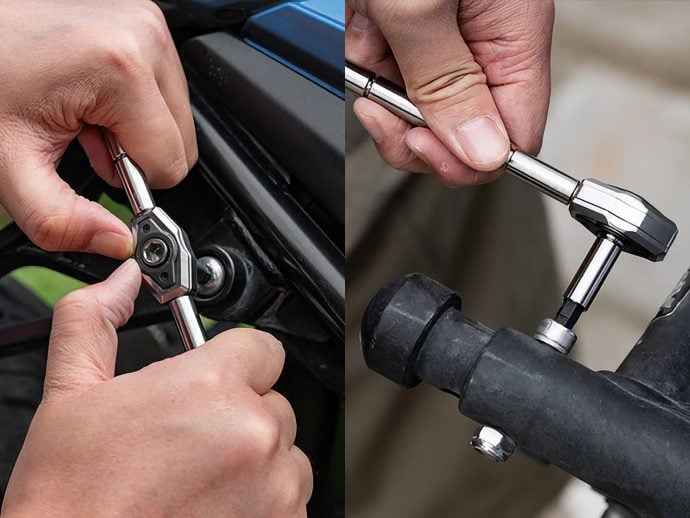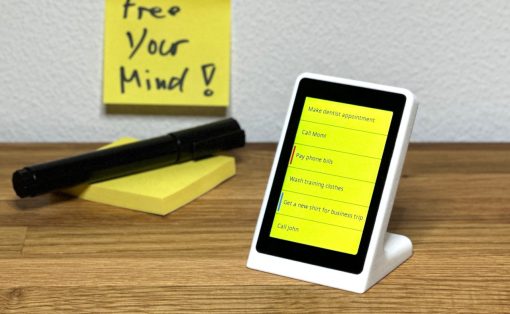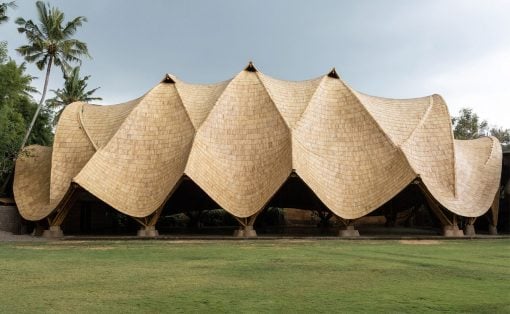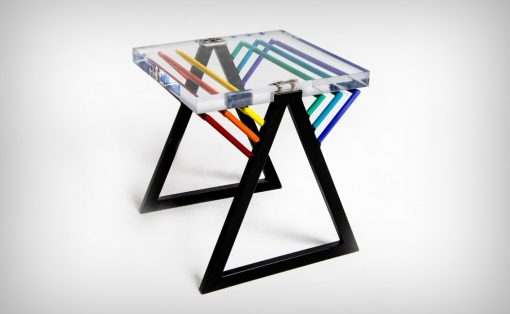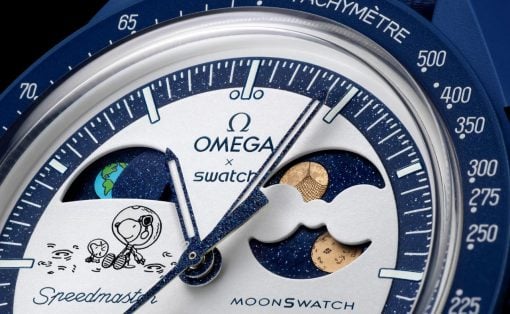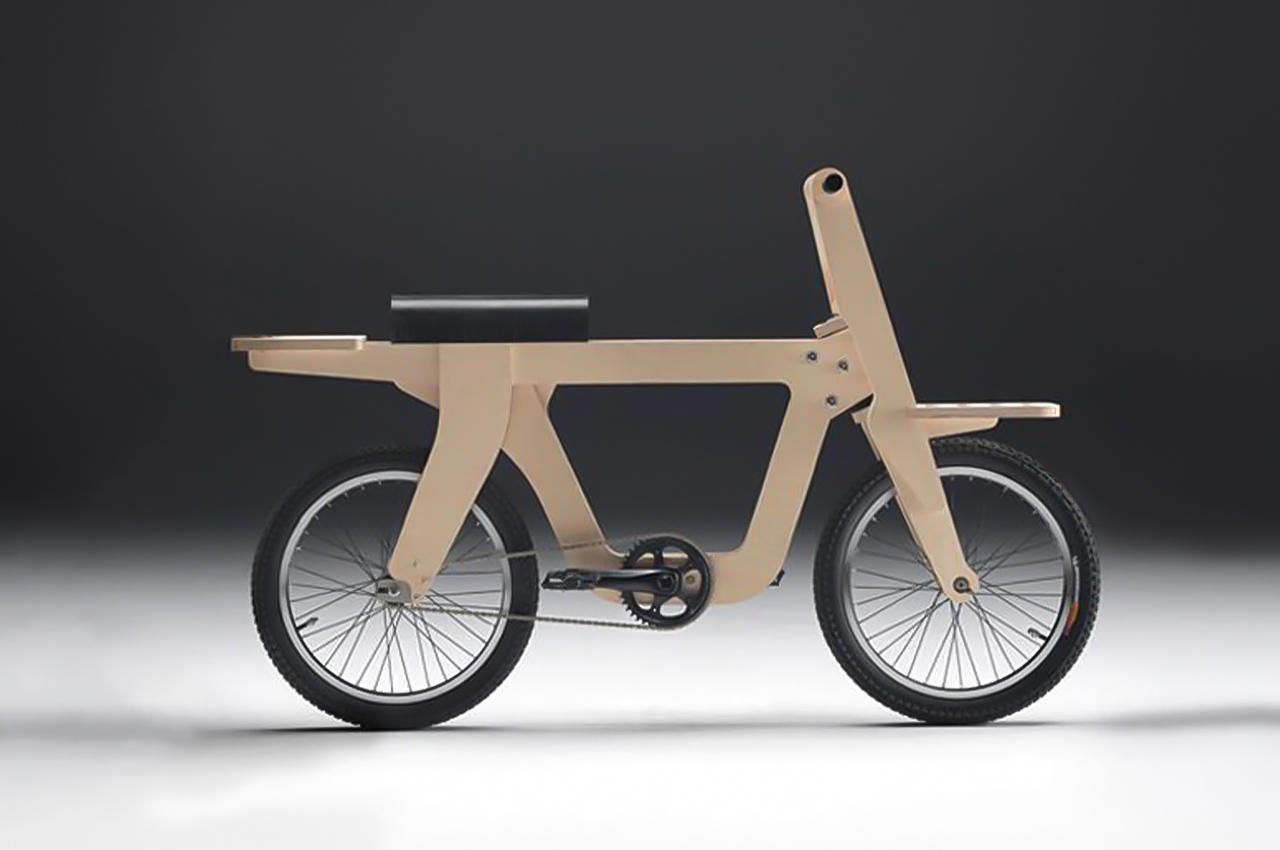
Our unhealthy practices and way of living are truly harmful to the environment and have been slowly leading to its deterioration. And the world has been changing (for the worse) because of this. Hence, it is extremely important to live sustainably and consciously and to take care of the environment. Integrating sustainability into our day-to-day lives has become crucial! And we can do this in various ways. Designers and creators are coming up with sustainable alternatives for almost everything! Every product that is necessary and utilized by us in our everyday routine has an eco-friendly alternative to it. Replacing our usual mass-produced designs with these greener options will make a huge difference to the environment and Mother Earth! From a fish leather derived from salmon skins to sustainable eco plates – we’ve curated a whole collection of sustainable product designs to help you go green!
1. Openbike
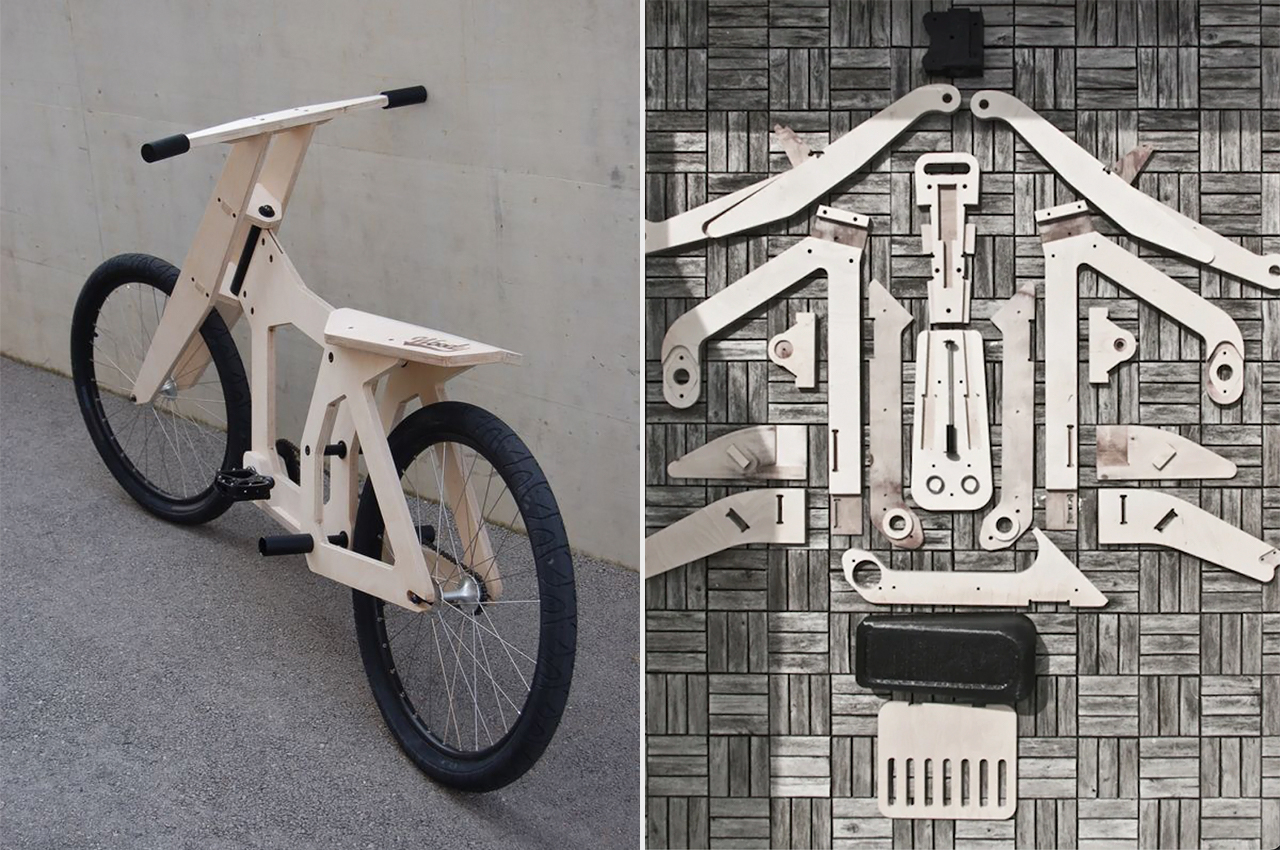
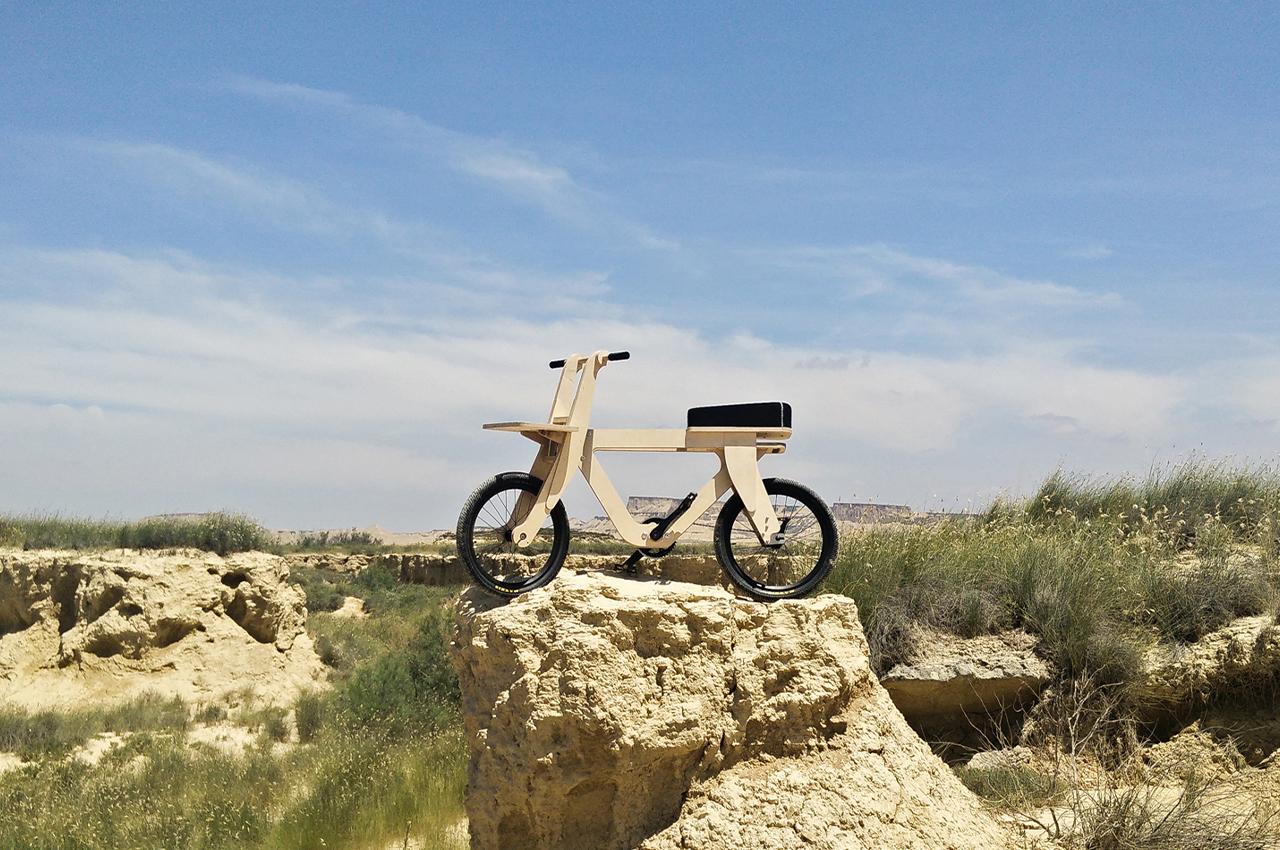
This bicycle made of plywood was created with the intent to get more people to focus on sustainability. The open-source design is called ‘Openbike’ and despite the obvious problems that come with a bike made from plywood, it is still an affordable and lightweight alternative for those who want to live on a budget but are also eco-conscious. You can download the files to build your own bike here!
Why is it noteworthy?
“This is not about bicycles! Open your eyes, this is about you, about your attitude towards the future. Do you think that the pollution of the cities will disappear by itself? Do you think traffic jams are caused by others?” reads the Openbike website which makes the mission statement of the design very clear – they’re not claiming to offer the durability or a thief-proof bike but rather shift your perspective on affordability and sustainability.
What we like
- It’s a DIY design!
- Reduces carbon emissions in cities by empowering people with technology
What we dislike
- No complaints!
2. The KNORK Eco line
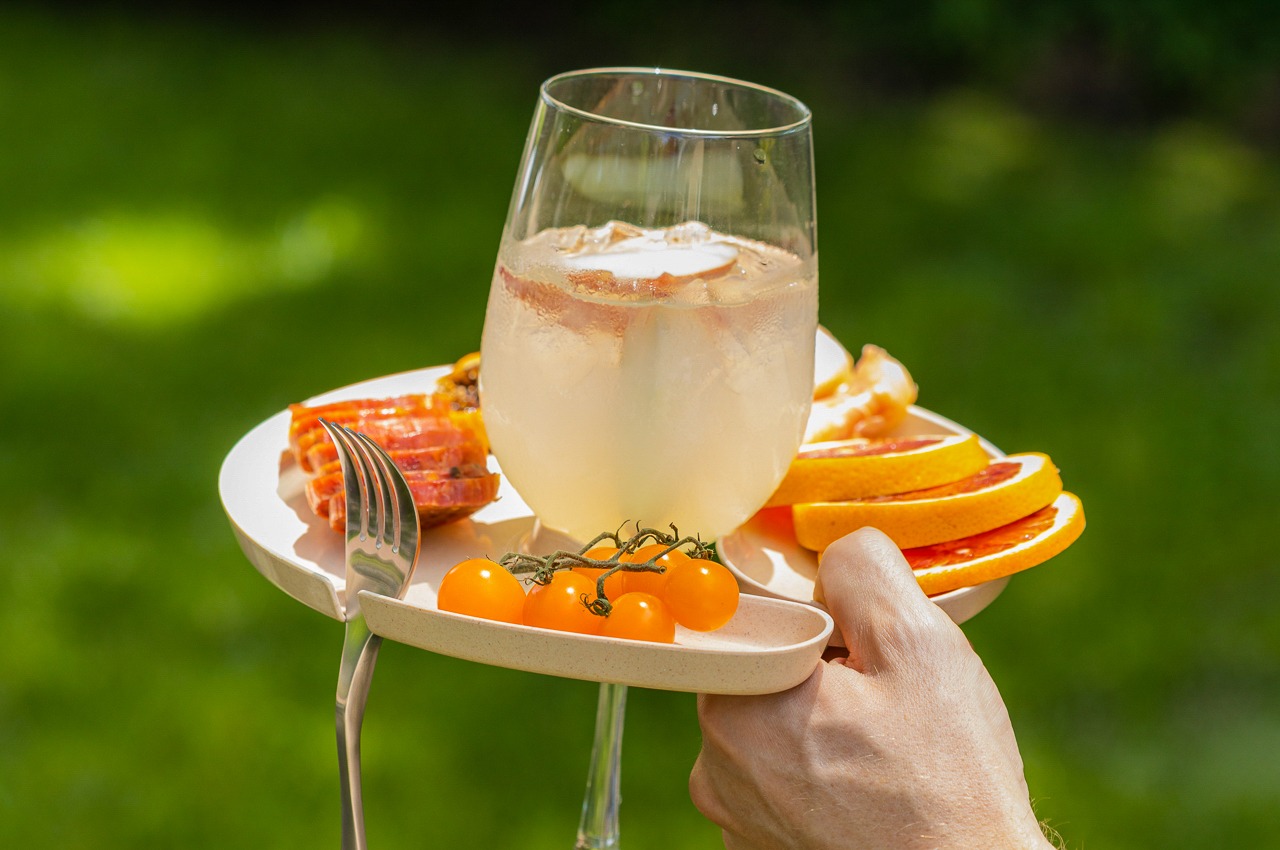
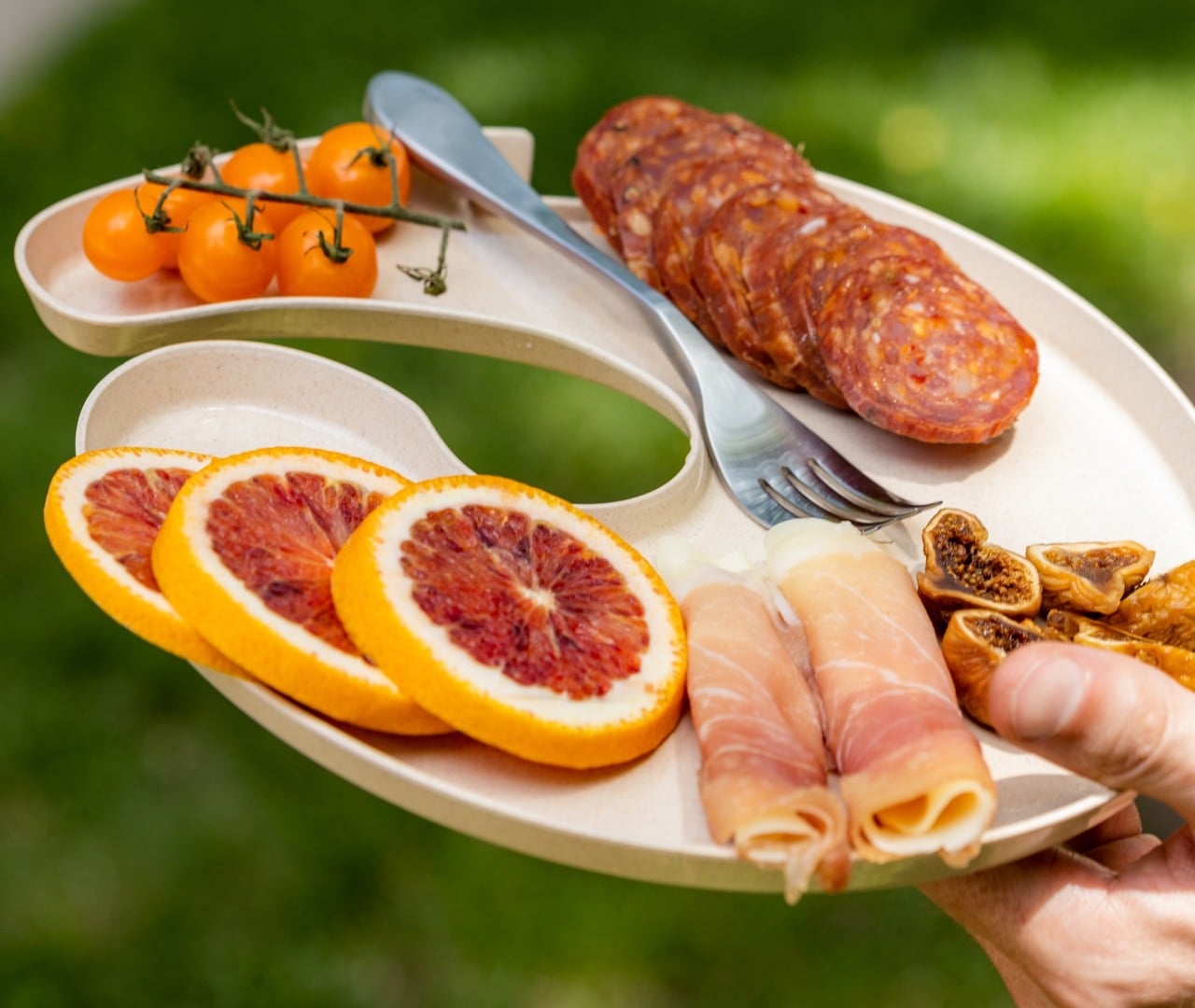
Sustainable entertaining is slowly becoming a thing, at least, for those people who are eco-conscious and willing to care more for Mother Earth. The KNORK Eco line continues to deliver genius design and epic functionality with another useful product that goes well with the Knork eco cutlery introduced a few years ago. Sustainable living starts when you make sustainable choices no matter how small or trivial they might seem—and this KNORK Eco Party Plate is another step in that direction.
Why is it noteworthy?
The KNORK team can help by giving us “greener” choices. From the same company that delivered the bamboo-based KNORK Eco plastic cutlery, here comes the KNORK Eco Party Plate. The new product works with the KNORK Eco forks and the Knork stainless steel forks. As with the previous products, the eco plate offers more than just a cool design aesthetic.
What we like
- Reusable and compostable
- Made from bamboo and sugarcane offcuts
What we dislike
- No complaints!
3. Kenko sports equipment
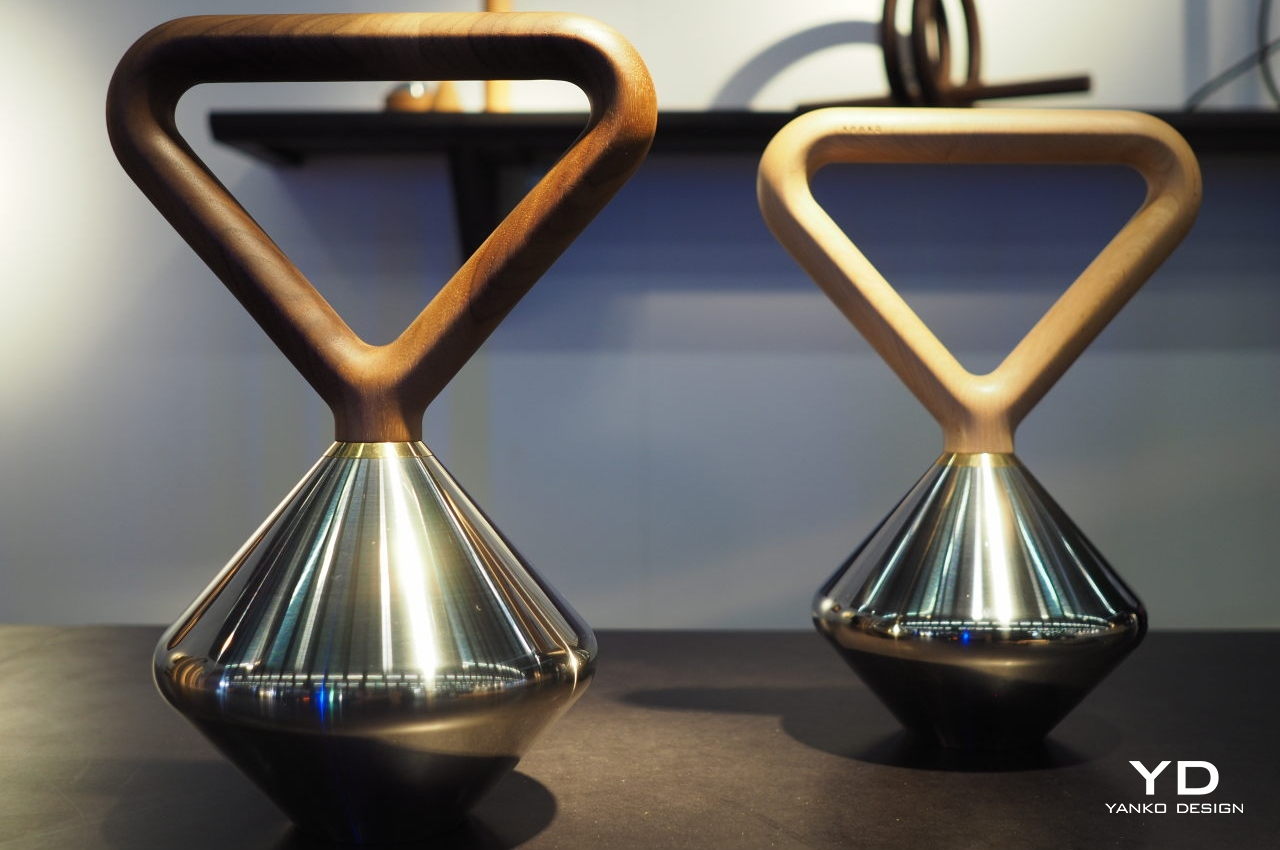
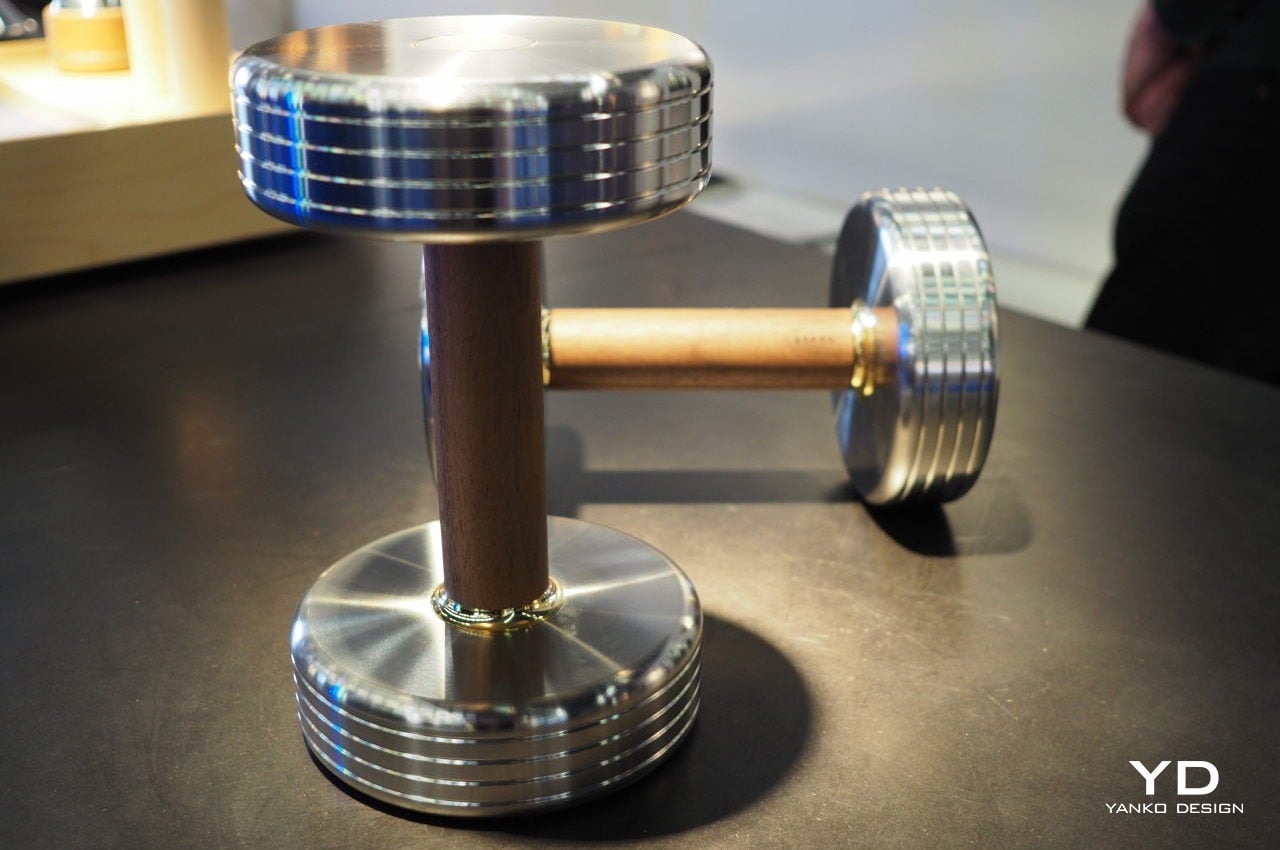
Over at the Maison & Objet fair, we saw a few brands and designers worthy of attention. One name that has stood out is Kenko —a company committed to developing sports equipment for use at home. The idea is to make minimalist versions of the standard fitness equipment using natural materials.
Why is it noteworthy?
Kenko is able to come up with regeneration items that don’t only help you with your health and fitness goals but also fit any home interior. Gym equipment usually looks bland, boring, or industrial, but not with Kenko. The Kenko sports equipment and products mainly boast simple designs and innovative functions. Materials are premium quality, starting with cork and wood, used for geometric shapes that have become the distinguishable trait of Kenko.
What we like
- Look like sculptural pieces that may also function as home decors
- A sustainable alternative to the typical gym equipment available in the market
What we dislike
- No complaints!
4. The 4PM Chaise Longue Chair
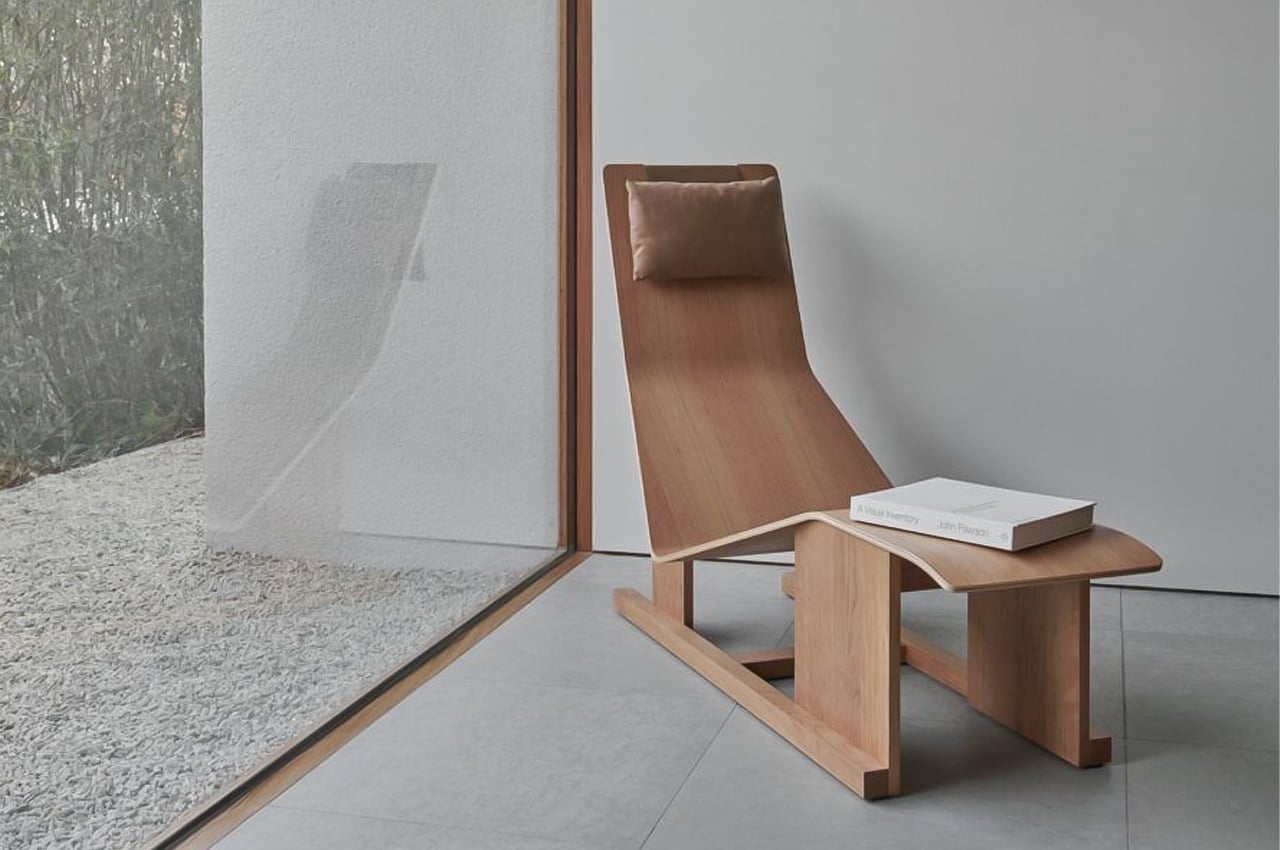
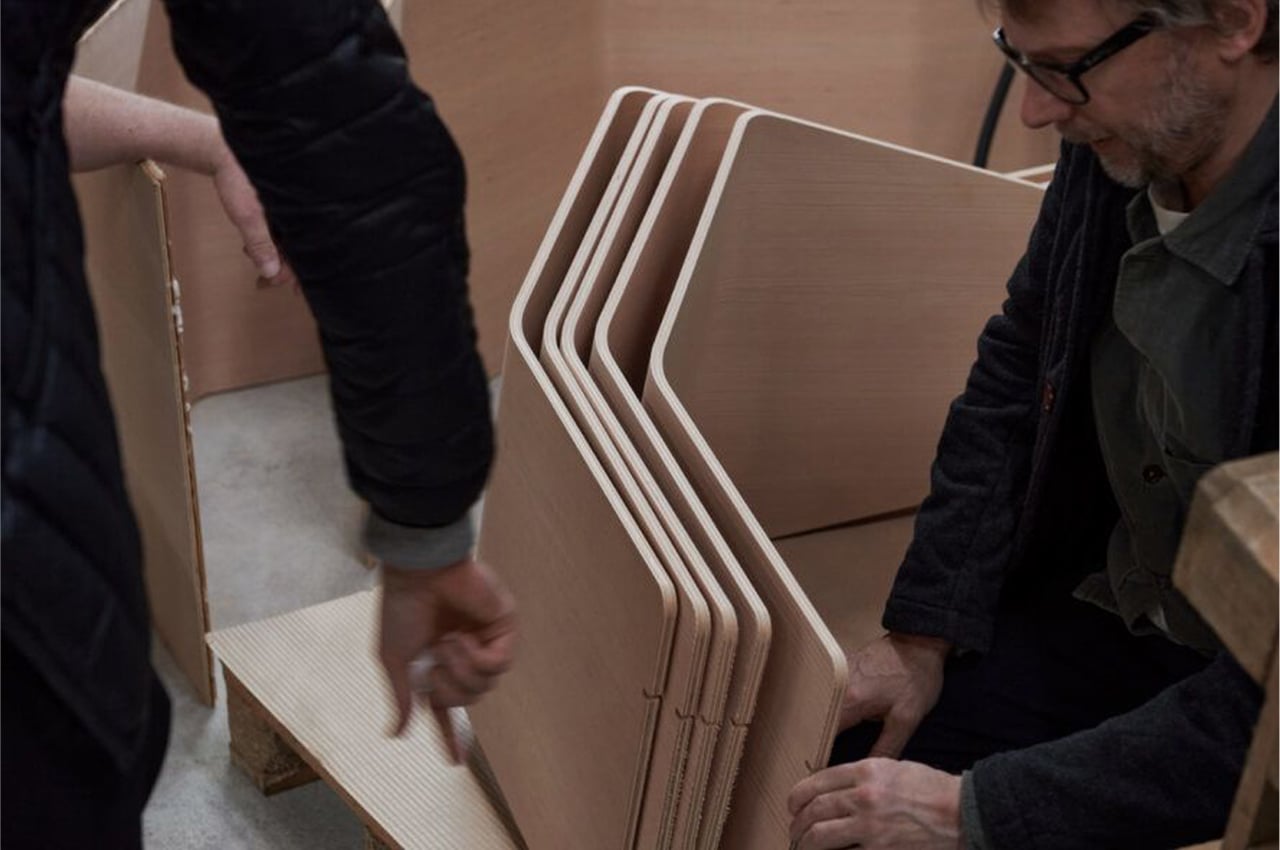
Comprised of flat and curved features, the 4PM Chaise Longue Chair is designed to create comfort out of hard material. Constructed in either Douglas fir or cherry wood, the only upholstered component of the 4PM Chaise Longue Chair is the leather headrest. Balanced on top of the backrest, Massproductions held the headrest in place with a steel weight.
Why is it noteworthy?
Massproductions is a slow furniture company, don’t let the name fool you. Since the furniture company only develops a few pieces every year, the ones that go into production guarantee a top-quality build and durable life span. Boasting an efficient, sustainable, and high-quality industrial production process, the company’s designers ensure the integrity of Massproductions’s vision. The company’s founder, Chris Martin, developed the 4PM Chaise Longue Chair to reinforce the company’s commitment to quality and produce an ergonomic, long-lasting chair for much-needed R&R.
What we like
- Sustainable production and design process
- Ergonomically designed
What we dislike
- Doesn’t seem very comfortable to sit on
5. Listón
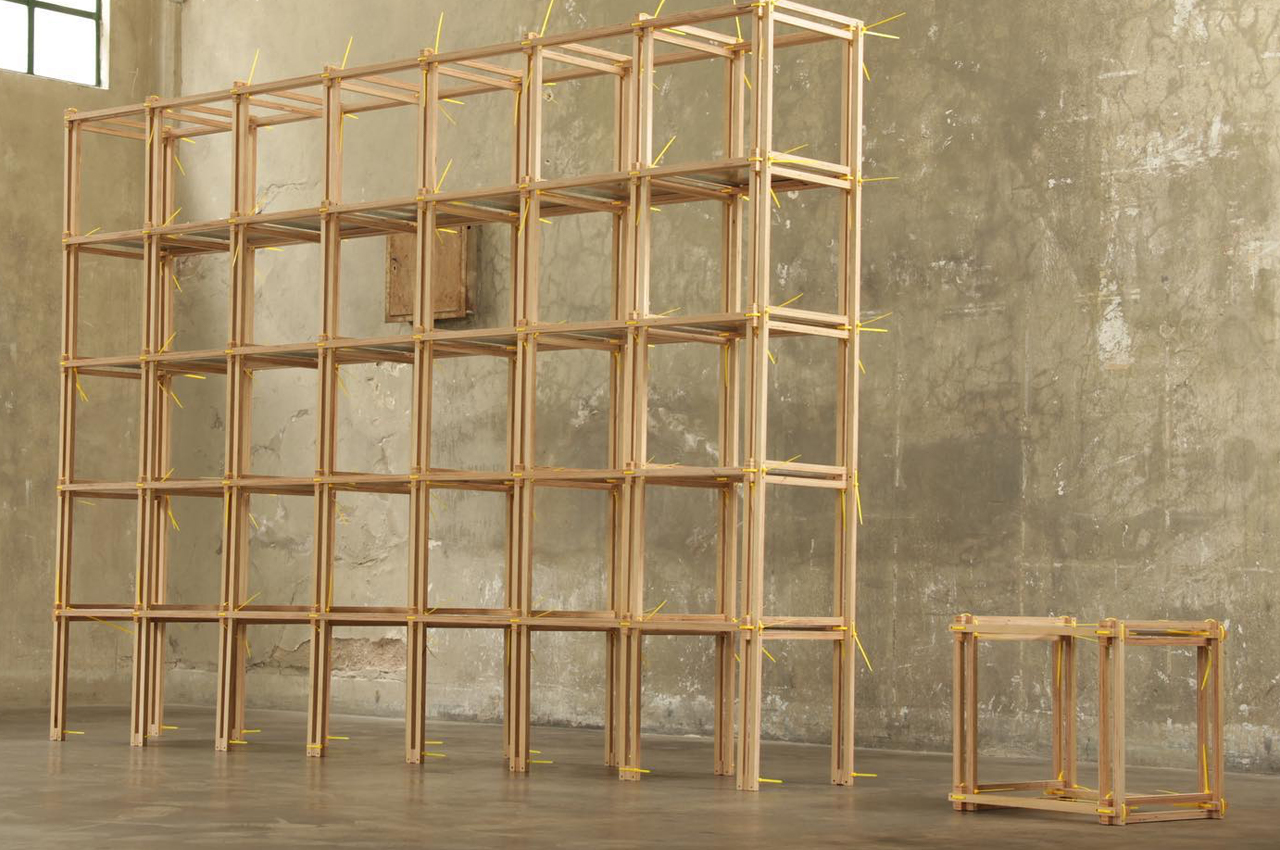
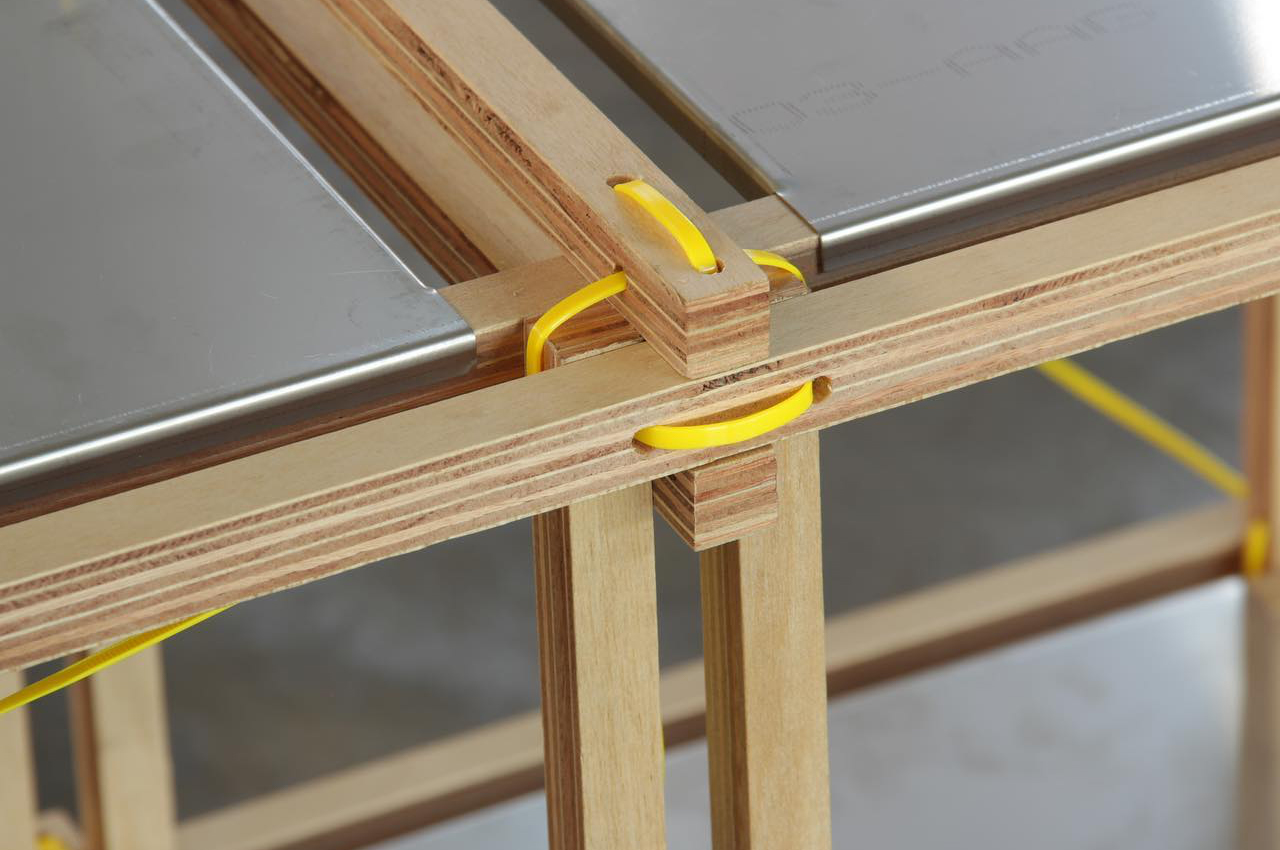
Listón is a modular shelving unit that uses a system of cable ties and wooden slats to form an endlessly re-configurable and sustainable furniture piece. The cable tie system allows users to create infinite configurations of varying sizes and shapes for essentialist shelving units that will look good in any room. Replacing hardware and tools, the cable ties systems provide secure fastening for each module that comes with Listón.
Why is it noteworthy?
With this in mind, many designers are approaching new furniture and appliance designs with sustainability being the driving force. Adding his design to the mix, architect, and designer Guille Cameron Mac Lean developed Listón, a new type of furniture system that uses cable ties and wooden slats to configure modular storage units.
What we like
- The system of cable ties and wooden slats significantly reduces the amount of packing goods needed to ship the furniture system by 18 times in comparison to other flatpack furniture
What we dislike
- The wooden slats and cable ties could break
- Not the most aesthetic furniture design to add to your living space
6. Bruk
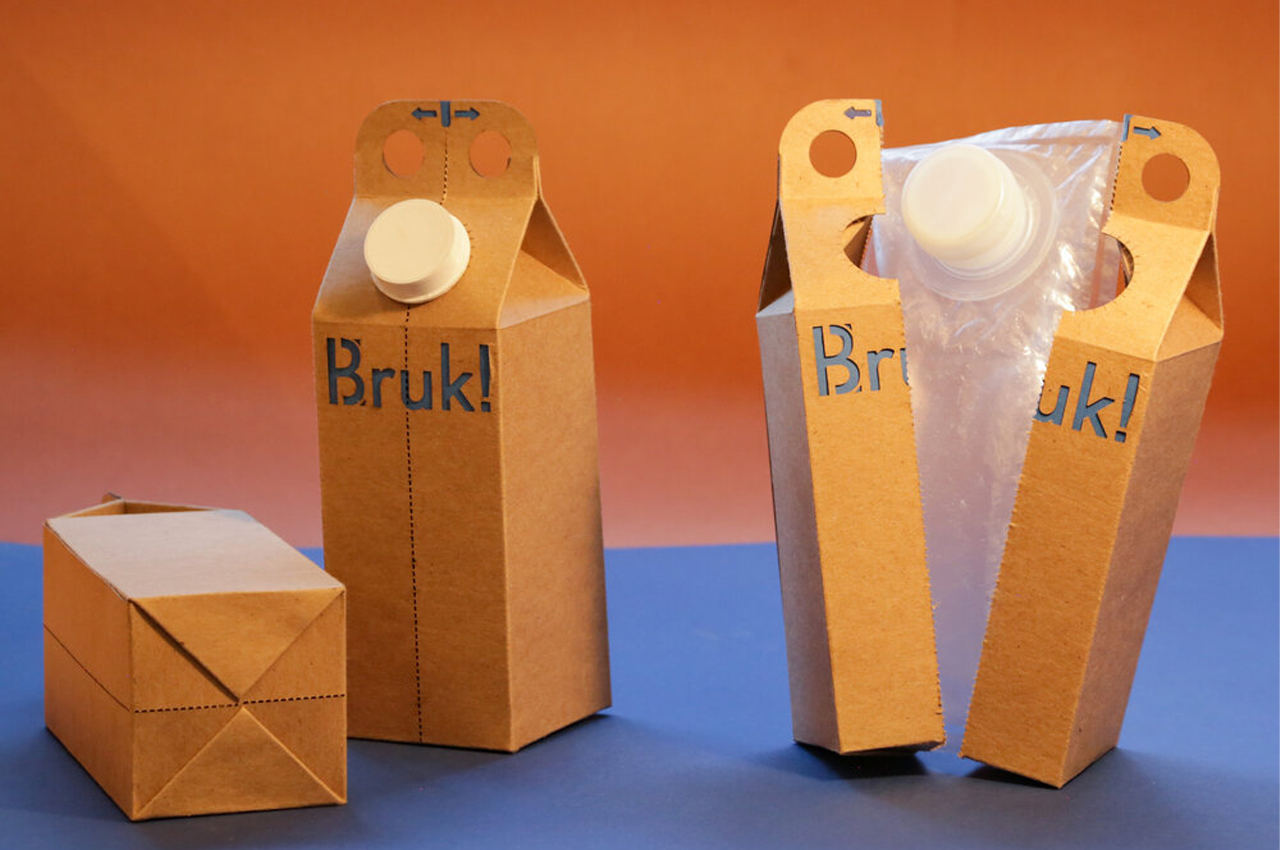
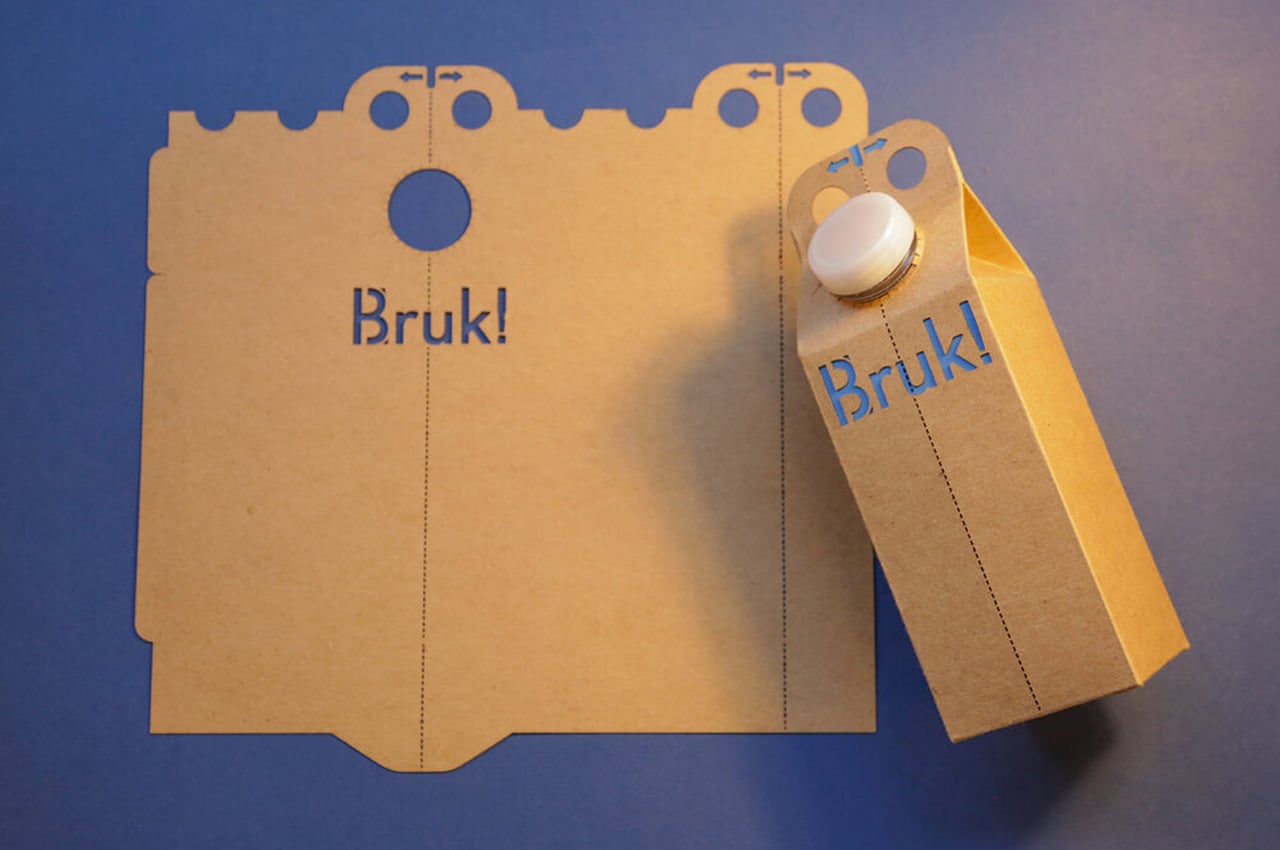
Bruk is a sustainable alternative to plastic-lined paper packaging built to separate the plastic lining from its paper covering like peeling a banana.
Why is it noteworthy?
Before the recycling process begins, the plastic and paper must be separated, which requires a special process that’s expensive and not readily available worldwide. In an effort to streamline the separation period, California-based designer Pushan Panda created Bruk, a sustainable packaging concept that makes separating the plastic from the paper as easy as peeling a banana. When users are finished with their beverage cartons, they can simply tear Bruk in half from its top, just like peeling a banana. Once the paper covering has been torn in half, the HDPE liner is revealed and can be recycled on its own.
What we like
- Intuitive and inclusive, easy for everyone regardless of physical ability
- Uses less plastic than a plastic carton
What we dislike
- No complaints!
7. The Ermis Chair
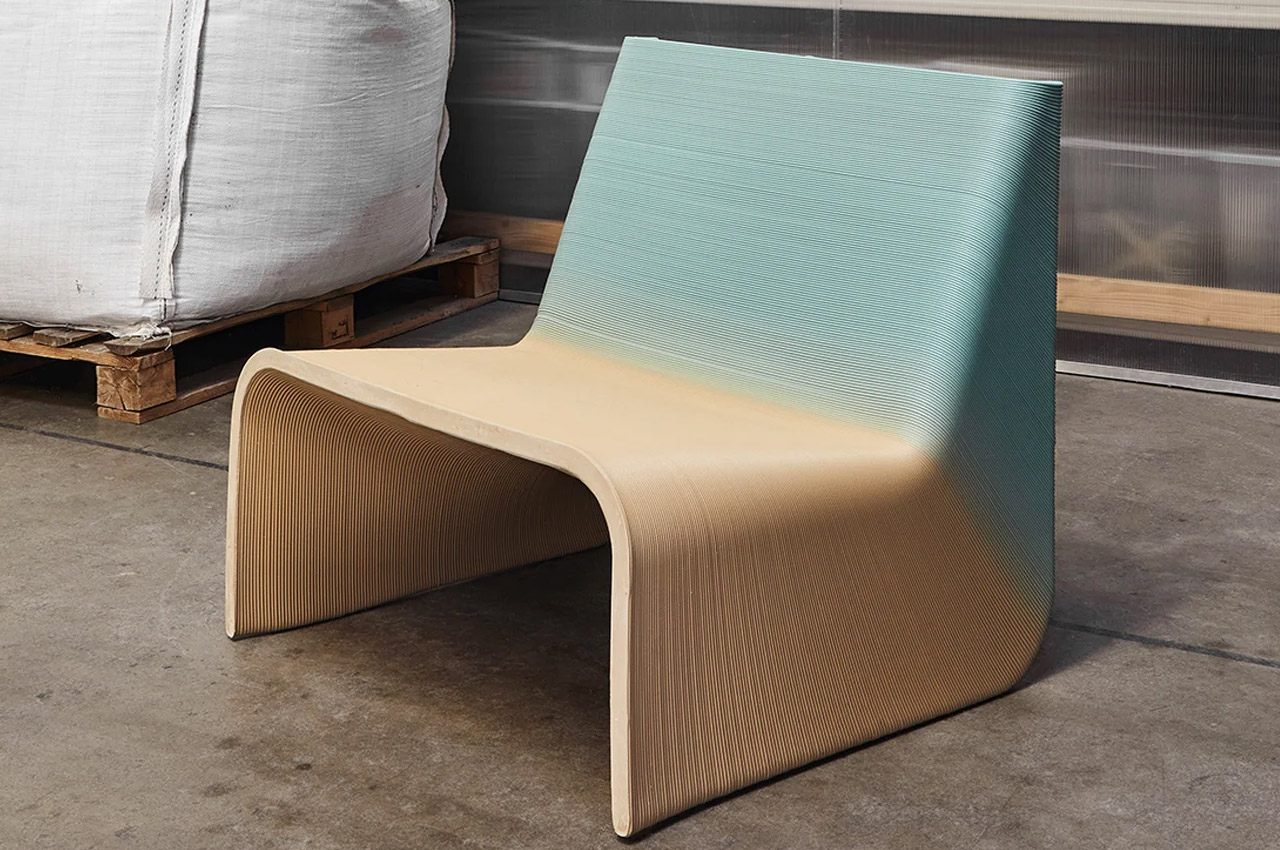
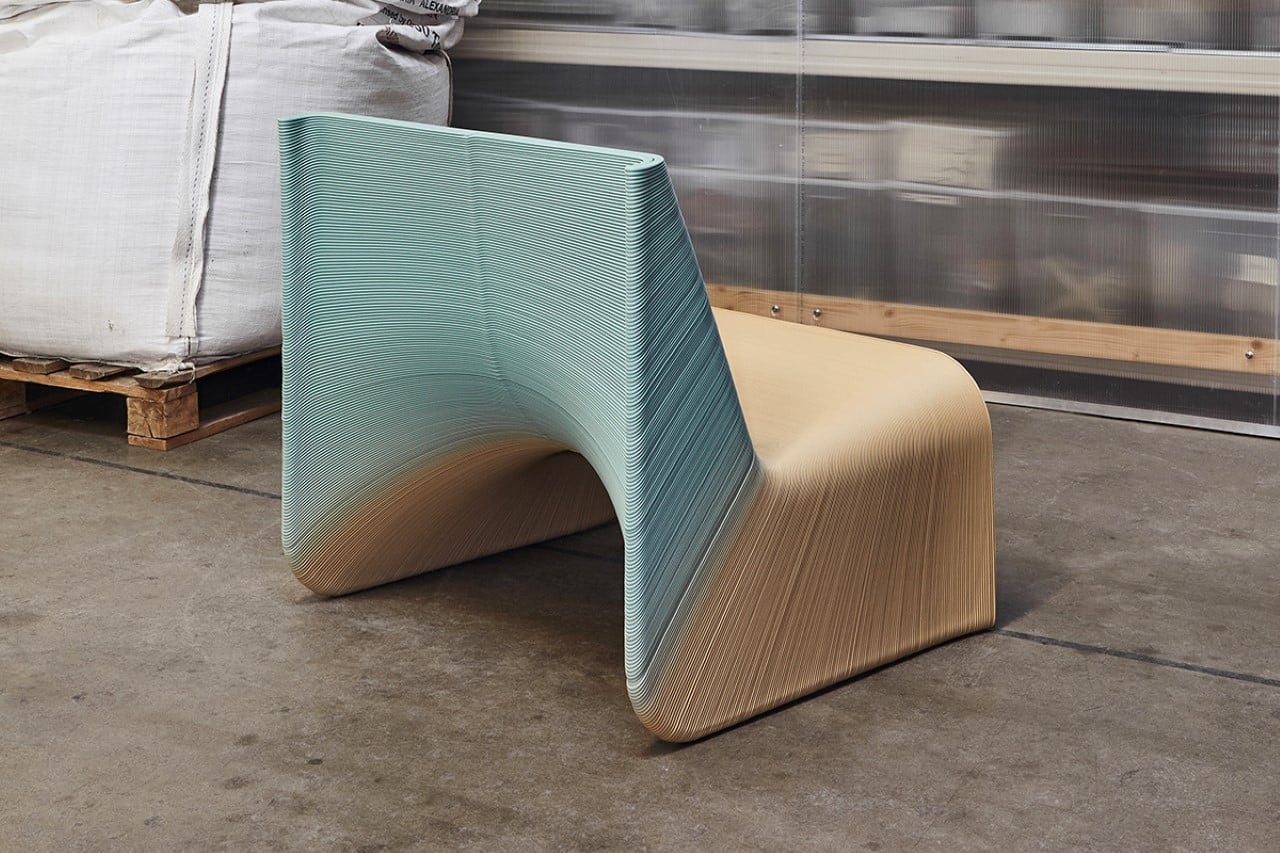
The Ermis Chair by The New Raw displays the combination of human ingenuity with robotic accuracy to turn plastic waste into robot-aided 3D printed furniture. The Ermis isn’t just a marvel of engineering and sustainability (recycled plastic, remember?), it’s also a phenomenally pretty chair. That gradient of light brown to blue has an instant beachy feel, with colors resembling the sand and the water. Look behind and you’ll see a sack filled with plastic pieces that served as the raw material for the Ermis chairs.
Why is it noteworthy?
Working with the robot and experimenting with new plastics requires constant experimentation, which then results in a lot of plastic waste. Determined to not let the waste end up in some landfills, Panos and Foteini decided to repurpose the plastic waste into furniture. The Ermis Chair is a result of that grand experiment, with its uniquely beautiful form and that absolutely gorgeous natural color gradient that comes from the extruded plastic filament gradually changing color through the print.
What we like
- Created from recycled plastic
What we dislike
- As sustainable and pretty as this chair is, we don’t know how comfortable it would be to sit on
8. The Felsie Fish Leather
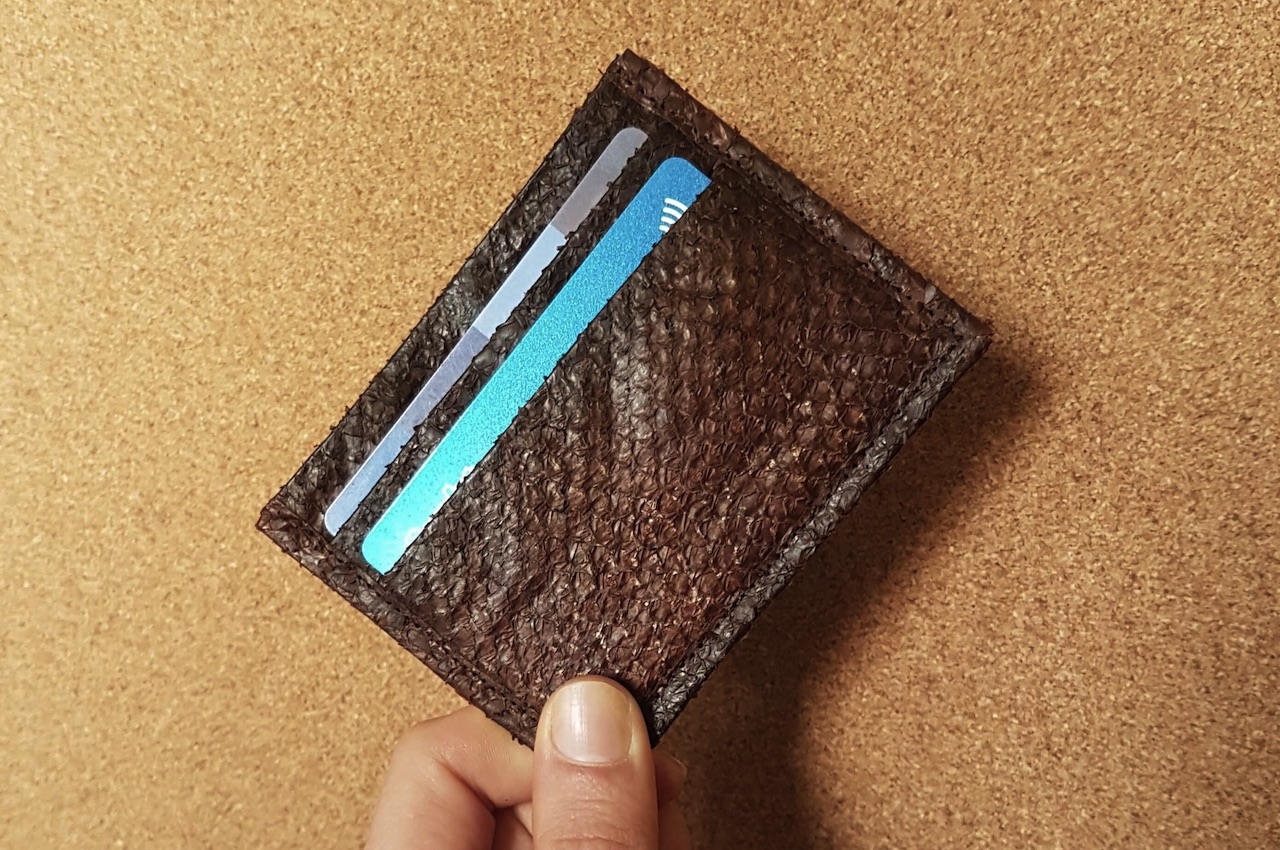
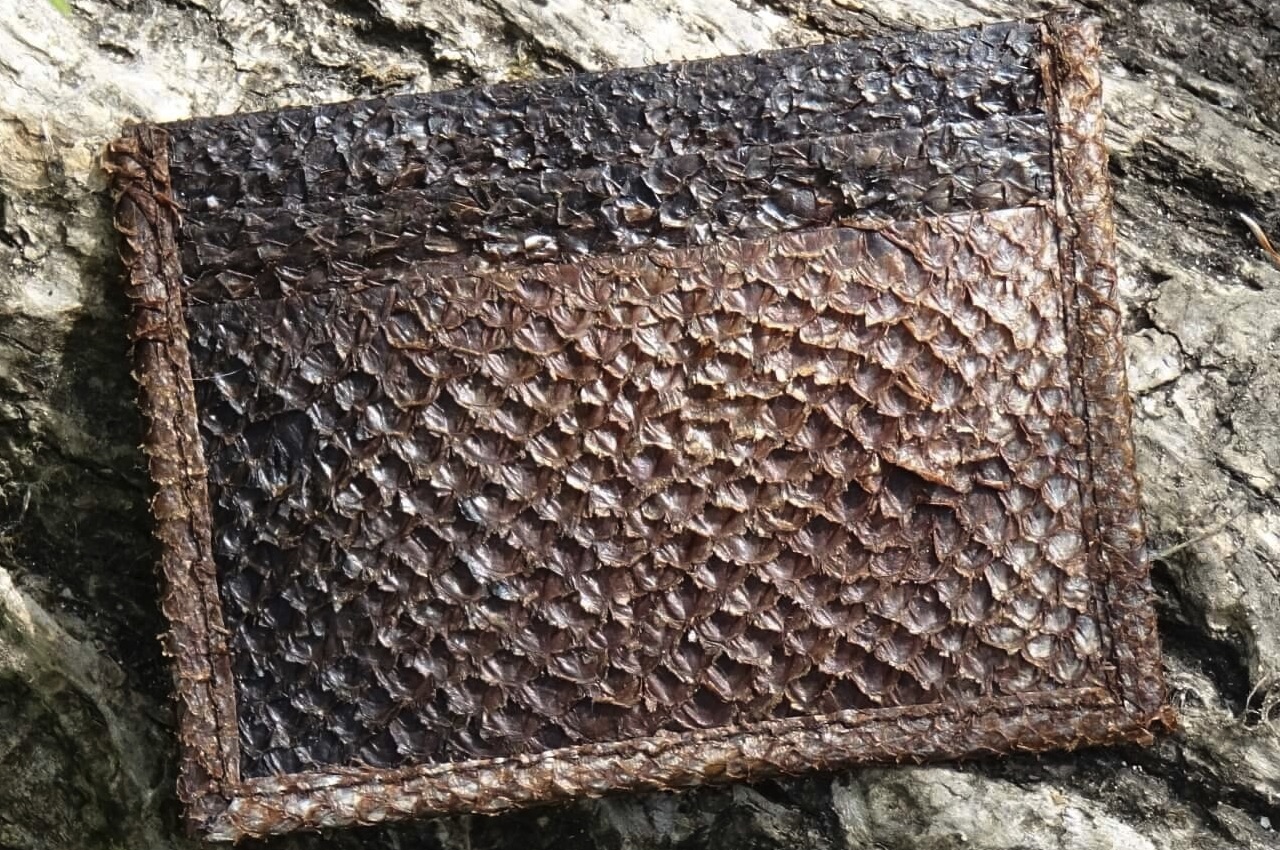
Sustainable fashion may be a challenge, but it can be done with efforts like this fish leather. This is the first time we’re hearing about this new kind of leather that can be used for different accessories. No, this isn’t exactly fishy, but Felsie knows what it is doing.
Why is it noteworthy?
The fish leather tannery and studio use bark tanning on rescued fish skins. These are those about to be thrown into the trash can but are instead transformed into fish leather. The processed fish leather is then used to make different accessories like a wallet or a cardholder. The Felsie Fish Leather is long-lasting and may even remind you of snakeskin leather at first glance. Many people are asking if it smells like fish. It doesn’t smell fishy but smells like any other genuine leather.
What we like
- A completely new kind of leather
- Long-lasting product
- DOESNT smell like fish
What we dislike
- Texture isn’t exactly smooth
9. The TAKEoSEAT
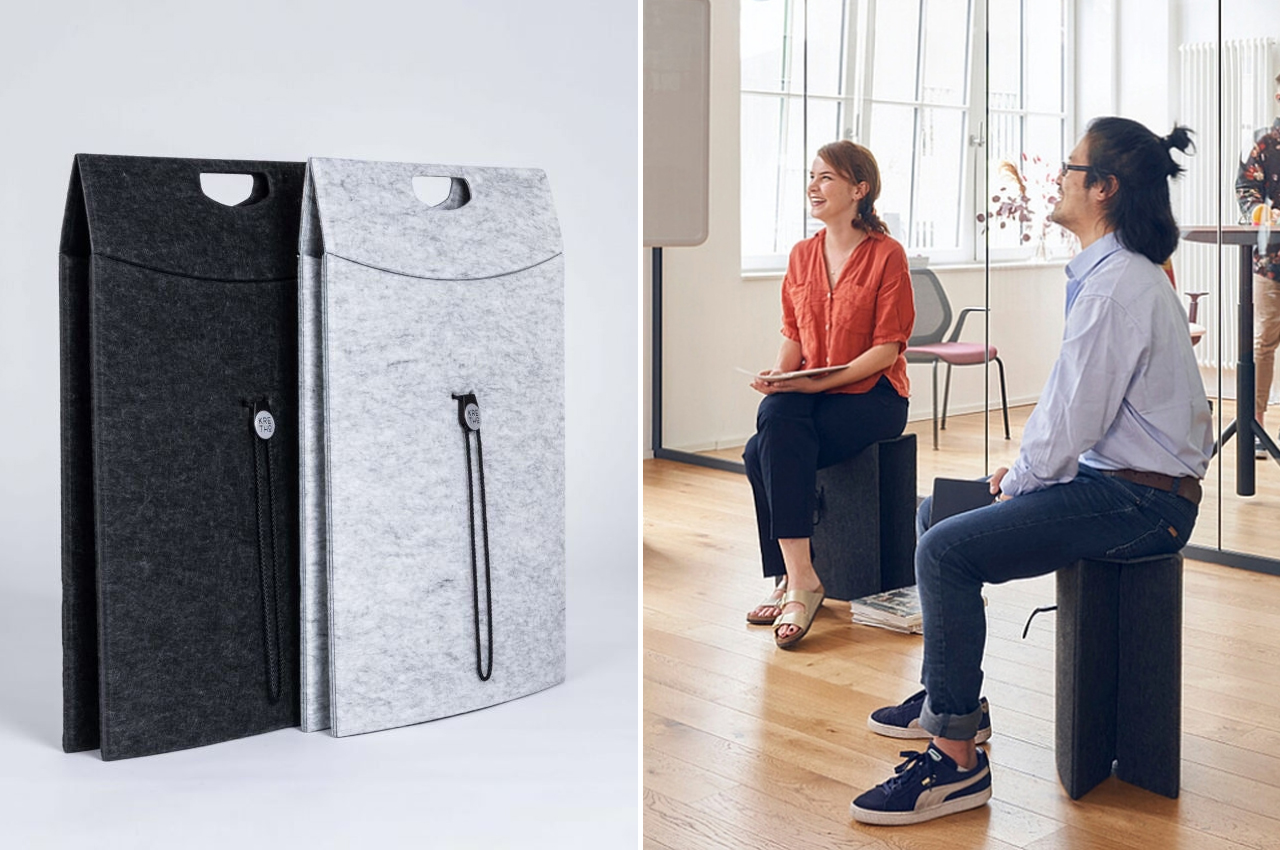
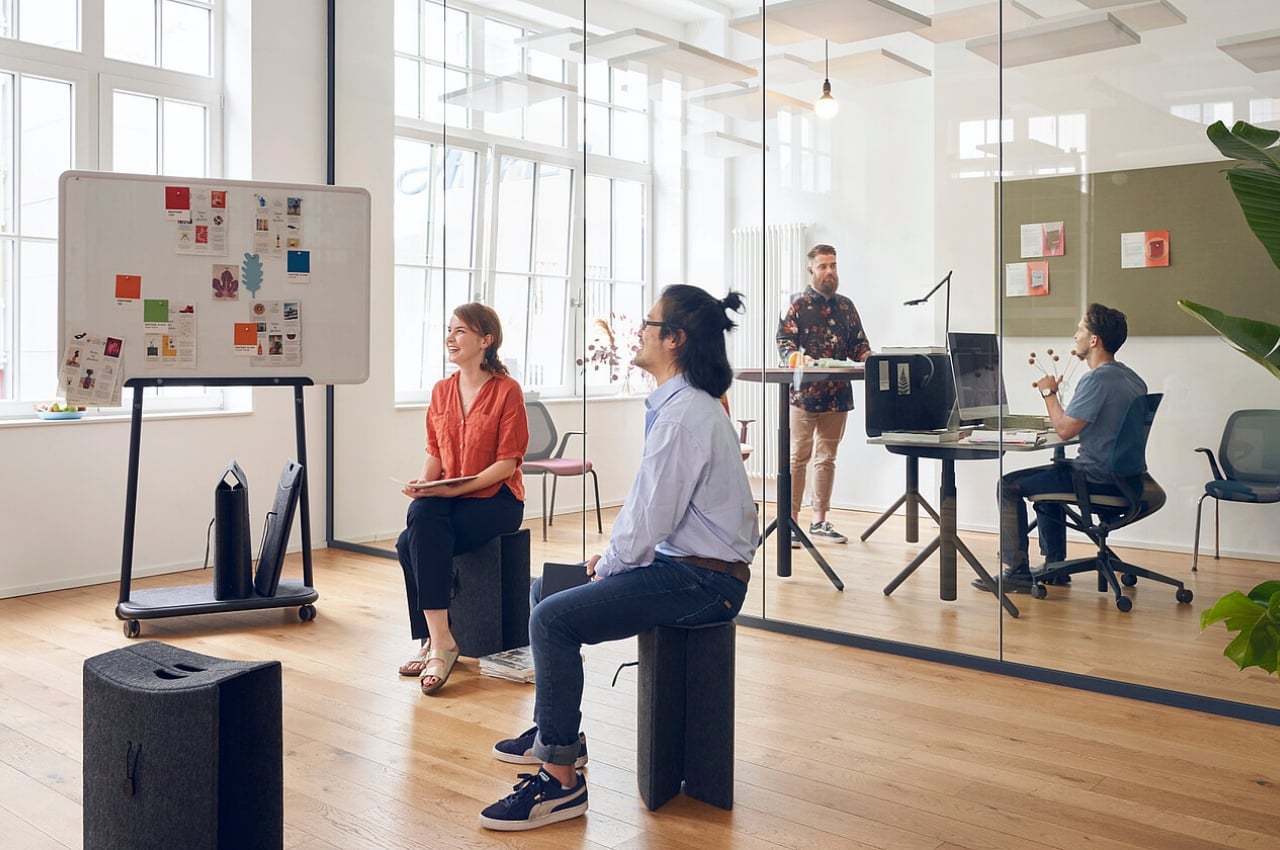
Folding stools are nothing new, but few actually try to hide the fact that people are carrying something meant to be sat on. In contrast, the TAKEoSEAT flattens down to something that looks like a large portfolio, or at least a stylish bag made of felt. You won’t look odd carrying it around, nor would the seat look out of place in an office space. Designer KRETHO positions this portable stool as a perfect part of an agile arsenal, allowing people to just pick up their seats and move around as needed. No more rearranging furniture or sweating over a heavy chair.
Why is noteworthy?
This folding design is admittedly not exactly novel, but what TAKEoSEAT adds to the table is a bit of environmental focus. Each stool is made from PET felt, which is felt that comes from those plastic bottles that we use and throw away without giving a second thought about where they end up. PET bottles undergo a special process (that does, unfortunately, use up water and energy) that results in a material that feels familiar to the touch while also strong enough to support a load of 130 kg. Plus, the TAKEoSEAT itself is recyclable, too!
What we like
- Created from PET felt
- Extremely portable
What we dislike
- Folding designs are quite common these days
10. The Stair Cubby
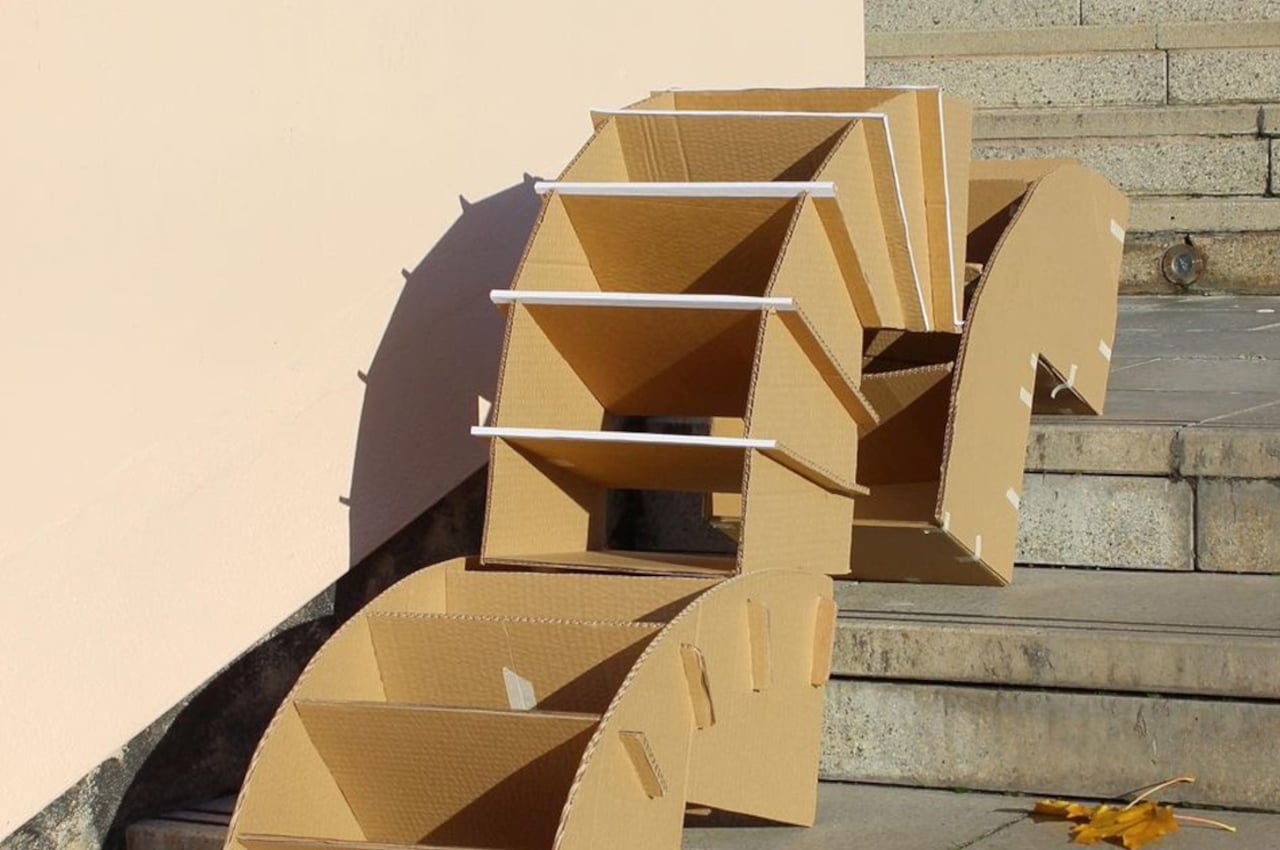
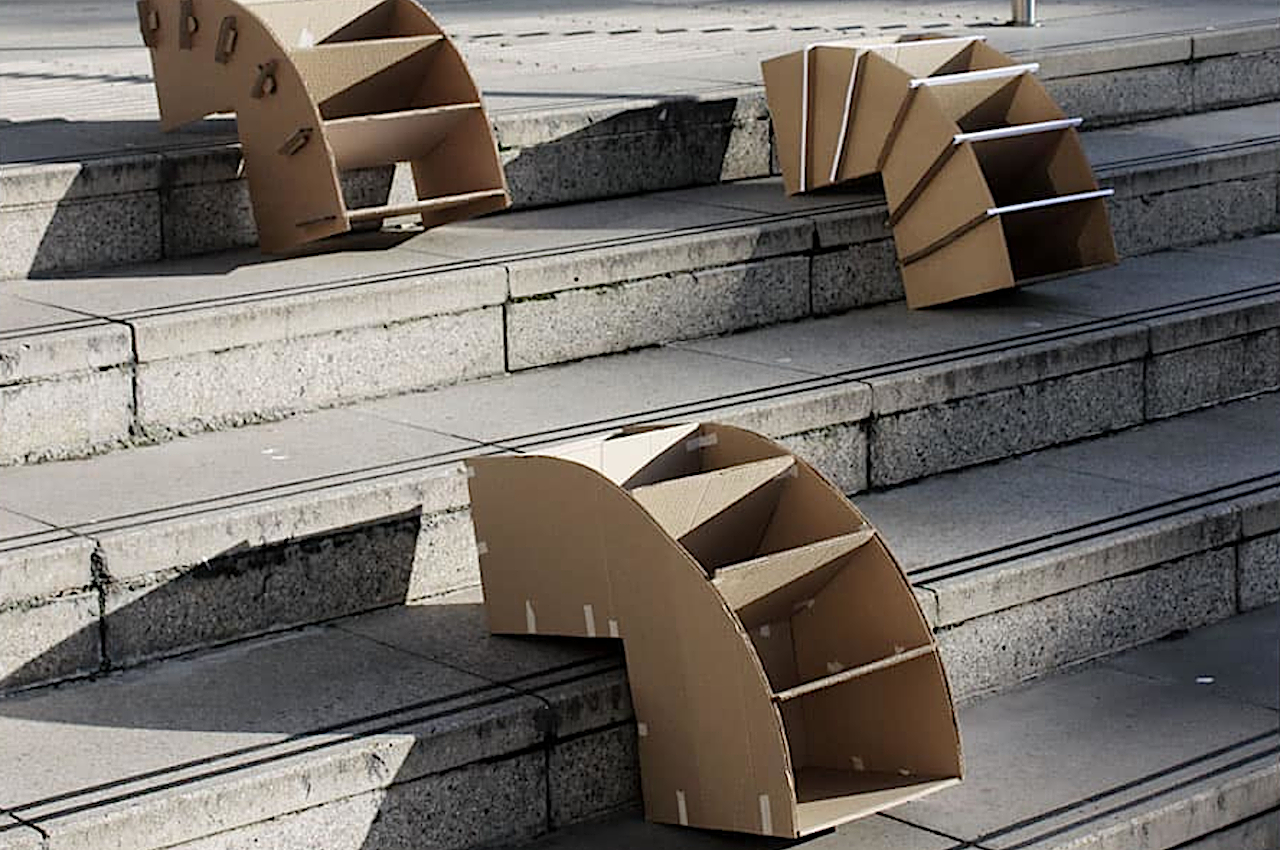
The Stair Cubby, as it was christened, can be assembled without the use of tools, with tabs simply going into slots and held down with pegs. The cubby is designed to sit on two steps of stairs, but the panel on the back can slide up and down to adjust to different stair heights. The storage has five open-access cubbies for shoes, books, and any other item that can fit inside, keeping things organized and out of harm’s way.
Why is it noteworthy?
Staircase bins need to take into account the particular shape of stairs, but not all stairs are made equal, so they have to be a bit more flexible or at least configurable. Given how in-demand these storage solutions might be, they also need to be durable and sustainable. These two product design students from Nottingham Trent University in the UK hit both birds with one sheet of plywood.
What we like
- Can be assembled without the use of tools
- Great for homes with space constraints
What we dislike
- We’re not sure how well it would hold heavier objects

